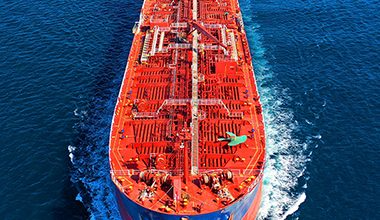Key Skills Required To Become A Maritime Security Specialist

Maritime security specialists play a key role in protecting vessels, crews, and cargo from various threats such as piracy, terrorism, smuggling, and other criminal activities at sea. This demanding profession requires a unique set of skills that go beyond traditional security roles due to the complexity of maritime environments. Below are the key skills required to become an effective maritime security specialist.
Strong understanding of maritime law and regulations:
A maritime security specialist must have an in-depth knowledge of international maritime law and regulations. This includes familiarity with the International Ship and Port Facility Security (ISPS) Code, the United Nations Convention on the Law of the Sea (UNCLOS), and the rules set by the International Maritime Organization (IMO). These laws govern security procedures, territorial waters, and the use of force at sea. Knowing the legal framework helps specialists enforce security measures while staying compliant with international and local regulations.
Risk assessment and crisis management:
Conducting thorough risk assessments is a fundamental skill for maritime security specialists. They must evaluate threats to vessels and cargo, such as piracy hotspots or geopolitical risks, and develop strategies to mitigate those risks. Specialists are also responsible for creating crisis management plans, which include how to respond to attacks or emergencies. Quick decision-making and effective problem-solving are essential in high-pressure situations, ensuring the safety of everyone on board.
Physical and tactical training:
Given the physical demands of maritime security, specialists need to be in excellent physical condition. They undergo rigorous training to handle combat situations, including the use of firearms, hand-to-hand combat, and defensive tactics. Also, proficiency in steering confined spaces on ships and knowledge of maritime combat scenarios are essential. Training also involves non-lethal methods to de-escalate threats when force is unnecessary, promoting a balanced approach to security.
Communication and teamwork:
Clear and concise communication is vital in maritime security operations. Specialists must be able to relay information effectively to their team, the ship’s crew, and external authorities. In a fast-paced maritime environment, efficient communication ensures that everyone is on the same page during emergencies. Additionally, maritime security often involves working in teams, so the ability to collaborate with others and lead under pressure is important.
Situational awareness and vigilance:
Maritime security specialists must constantly be aware of their surroundings. Vigilance is required to detect suspicious behavior, threats, or unusual activity in a maritime setting. They need to anticipate risks and respond swiftly. A high level of situational awareness helps them remain alert to sudden changes in the environment, ensuring timely and effective responses to evolving threats.